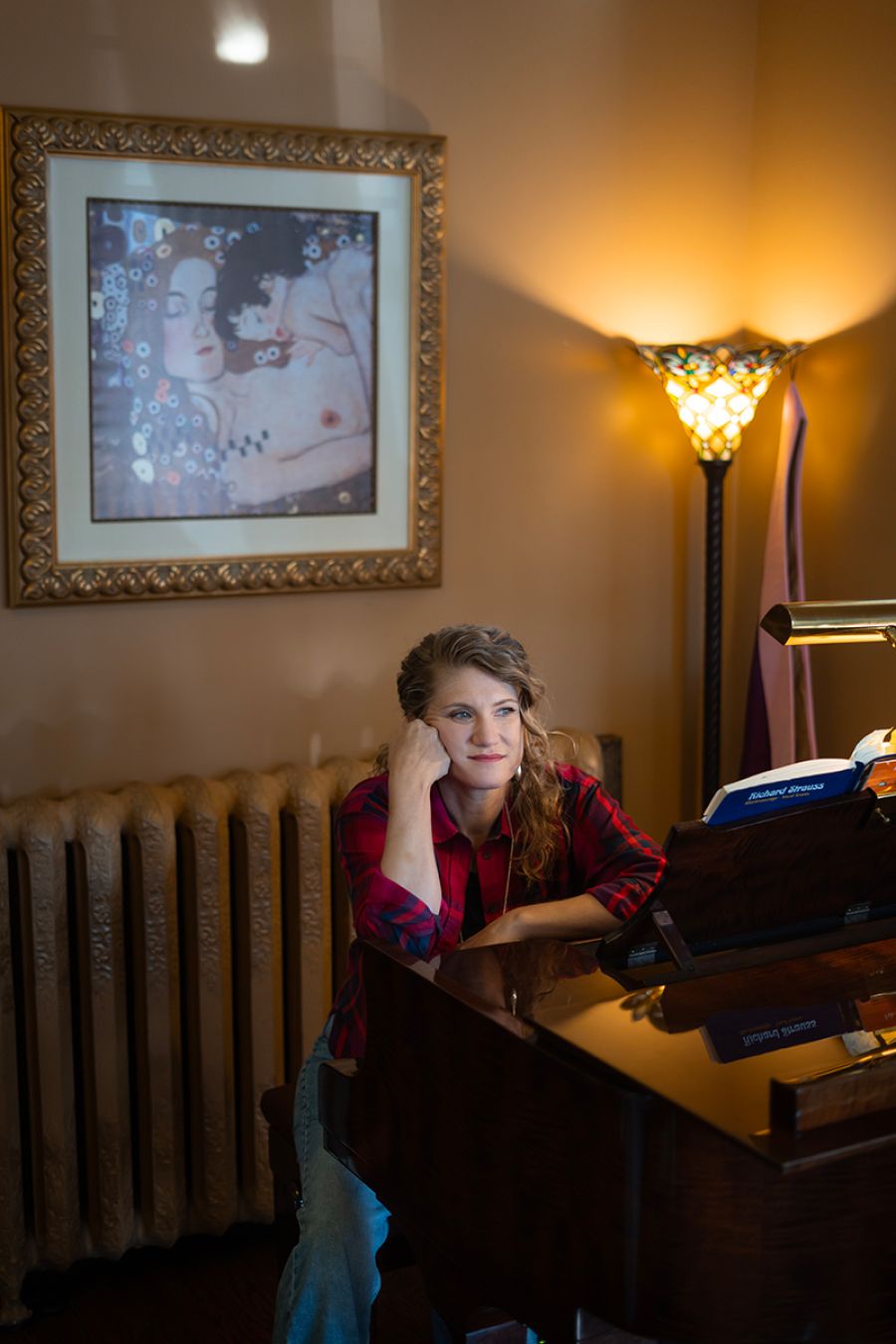Jane Archibald – Mein Seelenort: Mein Haus in Halifax - Deutsche Oper Berlin
Jane Archibald – My private place of peace: my home in Halifax
Jane Archibald loves her home in Canada but is also happy to make the journey to Berlin – as the Empress in Strauss’s THE WOMAN WITHOUT A SHADOW
The seat of my contentment is my house in Halifax. It’s only an hour by car from where I grew up and where my mother still lives. My husband, the tenor Kurt Streit, is from a military family, so they moved house every three years and he’s not used to putting down roots, whereas I’m very attached to Nova Scotia and all the places associated with my childhood. Halifax is the capital of Nova Scotia, a peninsular on the Canadian east coast.
Ten years ago we moved back here from Austria and found this house. The second we stepped through the door we knew this was the place. Some things you can just sense are right. The house was built in 1890, of wood, like many of the houses in the area. It gives onto a reasonably busy road diagonally across from a large park with baseball facilities and cricket pitches, »The Halifax Commons«. People ice skate there in the winter, jog or cycle in the summer. We call the park our front garden, which we don’t have to mow.
When I think about the things that differentiate a house from a home, a heap of things occur to me. Things like creaking floorboards, the smell, the cat creeping onto your lap while you’re sipping a cup of coffee. The way the light slants through the window at different times of the year. And then there are the people. My daughter reading her book upstairs, my husband tinkering away at something in the garage, a neighbour coming round for a chat and asking how my last trip was.
There was a time when I was a bit obsessed about keeping my work segregated from the rest of my life. I’m over that now, but at home I still act like I have a »normal« job. I keep evenings and weekends free for family and try to get all the stuff associated with my work done between 9am and 5pm, meaning the things outside of rehearsals and performances: the admin, the mails, the memorising. Which is why we have a room for music in the house, complete with an amazing Steinway that my husband inherited from his university singing teacher. We had to have it shipped from Albuquerque, New Mexico.

Archibald at her cherished Steinway. Her husband, the Austrian tenor Kurt Streit, inherited the piano from his singing teacher © Darren Calabrese
When I have time, I start preparing for an upcoming role very early. I’ve been preparing for the role of the Empress in Strauss’s THE WOMAN WITHOUT A SHADOW, which I’m singing at the Deutsche Oper Berlin, since last winter. I adore Strauss! He has a unique way of composing for a soprano. Early in my career I built up a reputation of sorts as a coloratura soprano singing Zerbinetta from ARIADNE ON NAXOS. Now that I’m getting the chance to expand my repertoire with the dramatic soprano of the Empress, I’m kind of under pressure – in a positive way – and I’m drawing energy from the experience. Even on days when my voice feels weary or I’m ill, I use the down time to go through the text over a cup of tea in the kitchen.
I’m intrigued to know how the director, Tobias Kratzer, is going to approach the story, which can be interpreted in so many different ways. The Empress’s dilemma is that she »has no shadow«, which is shorthand for her inability to have children, so then her nurse gets it into her head to cut a deal with a dyer’s wife: money in return for fecundity. Well, I’m a mother and always wanted to be one – but if my cards had been dealt differently, I would still have had a happy life. What I and each one of us have in common with her is the struggle to take the right decisions and do the right, humane thing. If we’re not careful, we can find ourselves losing our moral compass as we obsess about achieving some goal. The Empress’s story teachers us that it’s never too late to take a step back and say: Whoa, stop! This is not the way.
I’ve now reached a point in my career where I’m comfortable turning down roles – especially if I’ve sung them so many times before. There’s a reason why my home is the place I feel most contented. I don’t like being away from my family for weeks on end. If I have to travel, then preferably for something challenging and enriching. Like the Empress in THE WOMAN WITHOUT A SHADOW.





